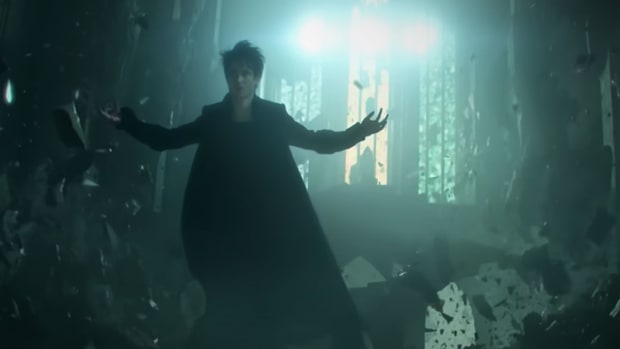After a three year absence due to covid, Marvel Studios returned to the San Diego Comic Con, first announcing which animated programs will be hitting Disney+ in the near future, and then detailing more information about the Marvel Cinematic Universe’s next wave of films.
The latest batch of Marvel shows and films, termed Phase 5 and Phase 6, will culminate in the films “Avengers: The Kang Dynasty” and “Avengers: Secret Wars,” which both be released in the 2025 and will cap off what’s being termed “the Multiverse Saga.” So if you enjoyed the parallel timelines seen in "Doctor Strange in the Multiverse of Madness" and “Loki,” you’re in for a treat.
Also, good news Daredevil fans! Your favorite blind vigilante will finally return to the screen in 2024 with the 18-episode series “Daredevil: Born Again.”
In total, Feige either announced or provided more details on 22 films and shows that will either premiere on Disney+ or end up on the service.
Can any single streaming platform compete with that? Or is Disney’s (DIS) domination of the intellectual property gamesmanship and streaming wars now complete?
Marvel and Disney Have the Edge on Netflix
Netflix (NFLX) had a first-mover advantage on all other streaming services. For a very long time, “streaming” and “Netflix” were as interchangeable as “Coke” and “soda” still are for many.
But times change, and Netflix has increasingly been taking a beating in the streaming wars, to the extent that it was considered good news when it “only” lost 970,000 paid subscribers during the second quarter, as opposed to the 2 million that had been projected.
Netflix’s subscriber total now stands at 220.7 million, which is down from a reported peak earlier this year of 221.8 million subscribers, but is still much bigger than any other streaming service in the game. But for how long?
But Netflix, as we’ve previously noted, has adopted a blank-check model of making lots of stuff, as opposed to focusing on making films and television shows that people actually want to see. For every "Stranger Things” or “Squid Game” that earns devoted fan bases, there’s far more original shows and films that just kinda exist on the site.
Netflix reportedly spent upwards of $200 million on the original action thriller “The Gray Man,” which stars Ryan Gosling and was directed by Joe and Anthony Russo, who have indicated that the service is hoping it becomes a defining franchise for the service.
Netflix isn’t in the business of releasing ratings. But according to the service FlixPatrol, which collects and aggregates which titles are trending on streaming services and video on demand, and which therefore can be used as a rough measure for what audiences are interested in, “The Gray Man,” is No. 8 on the chart, well behind "Doctor Strange in the Multiverse of Madness" and “Ms. Marvel.”

Netflix is Working on Its IP Problem
Disney+ is currently the second biggest streaming service in the game, having grown to nearly 138 million subscribers in the second quarter, and Forbes predicts it will eventually be the leading streaming service within a few years.
Disney’s main advantage is that it has more recognizable characters and intellectual property than nearly any other media company. In a climate where IP and built-in fanbases are everything, Netflix has two options.
It can try to make its own franchises, which is difficult under any circumstances and which history has shown Netflix has a spotty record with. Or it can try to license recognizable titles that haven’t been snapped up yet.
Netflix has indicated that it’s going to give the second option a try, as its main Comic Con moment was to reveal a trailer for its adaptation of “The Sandman,” which is based on the award-winning DC comic series written by Neil Gaiman.
“The Sandman” was one of the most beloved comics of the 1990s, and expanded what kinds of stories the genre could tell. Gaiman has said in interviews that he’s turned down attempts to adapt it for decades, but now he thinks that thanks to advancements in special effects and the possibilities offered by streaming, the time is right.
But the series will, to put it lightly, be a difficult one to translate, as it's a complex tale about the God of Dreams. A lot could go wrong, and adaptations are all about execution. (Reviews are still under embargo.)
But “The Sandman” fandom is both dedicated and legion, and if the adaption does manage to capture what made the series thrilling to millions, Netflix might just have the hit that it deeply needs. But could it be enough to change its fortunes, or is that asking too much of even the God of Dreams?







